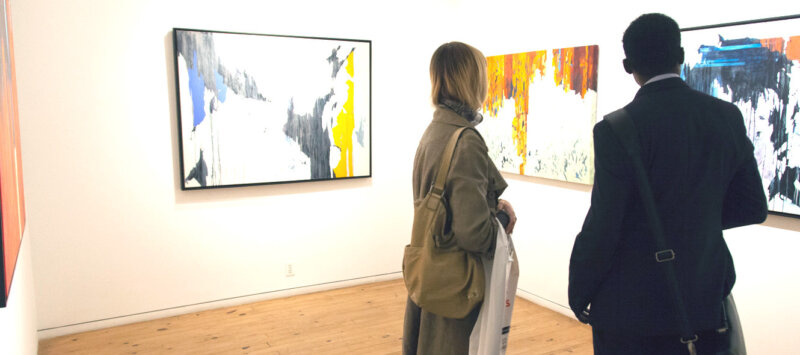Buying art for the first time can be daunting, especially if you are unsure what to buy, where to get it from and how to stick to your budget. However, everyone can enjoy buying and owning art in an affordable way, and it is still possible to build an impressive collection even if you have a conservative budget.
Here, Steven Sulley, founder and art advisor at Woodbury House, shares his tips for curating an art collection you love and feel proud of without breaking the bank.
Set a budget
Before you even begin looking for pieces to purchase, the first step to building an affordable art collection is to set a clear budget, as this will allow you to establish what is available for you to buy and what is off limits.
It’s worth starting with a small budget and gradually increasing it as you grow your collection and understanding of art. You will also need to decide early on if you intend to buy one original artwork every couple of months or multiple, more affordable pieces.
If your budget is tight, consider starting off by buying a limited-edition print rather than an original piece as, whist they are still valuable, limited editions are much more affordable than one-off originals.
Research your artist
Once you have a budget in mind, it can be tempting to go out and rush your first purchase, however it’s important to do you research first.
Immerse yourself fully in the art world and learn about the various types of mediums and styles available by visiting museums and galleries or finding artworks you love on social media.
The more art you look at, the easier it will be to determine which types of artworks and artists you love and enjoy more than others, and what kinds of works you envisage in your collection.
Speak to an art advisor
If you are still unsure about what artwork to select after doing your own research, it can help to work with an art advisor. Art advisors are a great resource and will be able to introduce you to artists and styles that you might not have otherwise known about or considered.
They can quickly find a wide variety of artworks based on your requirements and budget, which will not only help you make a more informed purchase, but could also save you money, as they will ensure you pay the right price.
Not only that, but these professionals can liaise between artists and galleries for you, saving you time.
Buy what art you love
When it comes to buying art for your collection, buying what you love and genuinely appreciate will always be a good investment. Afterall, you will have to look at these pieces every day, so you should opt for artworks that bring joy and inspiration to you personally.
Just because you have a budget to stick to, it doesn’t mean you need to settle for pieces you don’t love. As well as limited editions, don’t disregard photographs, drawings, sculptures, and art books, which can all be cheaper than paintings and make your collection a varied and eclectic one.
Choose quality art over quantity
Like anything you enjoy, buying art can be quite addictive once you get started, but it’s wise to take your time between buying pieces.
Stay smart about your purchases, and focus on buying few, high-quality pieces that truly have significance to you.
Don’t spend all your money on cheap art that doesn’t make you happy to own long-term. If you buy carefully, over time you’ll accrue a collection of special pieces that you really love.
Conclusion
Collecting art for the first time can be overwhelming, especially when you are trying to ensure your purchases are affordable.
By exploring your motives and learning where and how to purchase exciting pieces before you part with your cash, you can enjoy the journey from the beginning and make valuable investments that will stand the test of time.
Steven Sulley
Steven Sulley is founder and art advisor at Woodbury House






